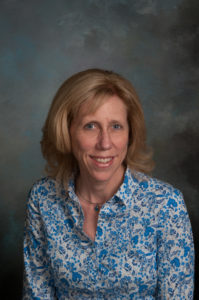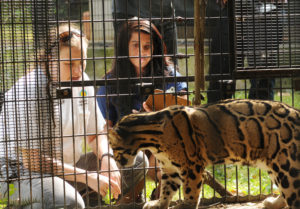
Modern Languages and Literatures Professor and Chair Betsy Lewis was appointed Assistant Dean of Arts and Sciences.
A Message from the Dean of the College of Arts and Sciences.
Dear colleagues,
I am pleased to announce the appointment of Dr. Betsy Lewis as the Assistant Dean of Arts and Sciences.
In her new role, Dr. Lewis will take over much of the work associated with support of our undergraduate research programs, including management of URES 197, the undergraduate research grant budget, and the annual Research & Creativity Day event. In addition, Dr. Lewis will support the college on more enhanced assessment of our activities in these areas, and will focus on better communication and promotion of student accomplishments by building a healthy relationship with University Relations and the Advancement offices.
Author of two books and more than 20 articles, Dr. Lewis earned her Ph.D. in Spanish literature from the University of Virginia and has spoken at dozens of conferences and universities around the world on topics ranging from gender in 18th-century literature to digital pedagogy. At UMW, she has been active in a variety of leadership and service roles, establishing important relationships with offices around campus. She is currently serving her sixth year as chair of the Department of Modern Languages and Literatures.
I would like to thank the search committee of Brooks Kuykendall, Lynn Lewis, and Margaret Ray, chaired by Associate Dean Grant Woodwell, for their valuable recommendations and insights during this process.
I personally look forward with eager anticipation to having Betsy as a colleague and partner in the work of the Dean’s office. Please join me in welcoming Dr. Betsy Lewis into her new position as Assistant Dean of CAS. She will formally assume this role in January 2020.
Sincerely,
Dr. Keith E. Mellinger, Dean
College of Arts and Sciences

